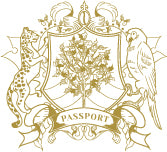- Home
- Coffee Tasting Flights
- Panama Geisha Filter Flight...

Panama Geisha Filter Flight 3 x 100
Order in the next today:
To receive your package between
and

Sample of all the amazing Geisha we have from Panama roasted for Filter.
The pack contains:
100g Panama Finca Hartmann Geisha Winey
100g Panama Dona Tere Geisha Natural
100g Panama Finca Irma Geisha Natural
All the above are vacuum sealed and aged ready to use.
Although it is a relatively small coffee producer, Panama stands out for the exceptional quality of the specialty coffee it produces. The microclimates in the mountainous coffee regions help keep pests and diseases under control and also provide unique environments that have demonstrated an ability to bring out the best in specific Arabica varieties that do not do as well elsewhere.
Among those varieties, Geisha is the most well-known for its role in catapulting Panama to international specialty coffee stardom. The first Geisha variety specimen was collected from wild-growing trees in Ethiopia in the 1930s. In 1953, Geisha was brought to Centro Agronómico Tropical de Investigación y Enseñanza (CATIE). CATIE distributed Geisha, then called T2722, across Panama in the 1960s. Despite the widespread dissemination of seeds and seedlings by CATIE in the 1960s, most farmers did not plant very many Geisha trees because the variety proved difficult to grow and maintain.
In fact, Geisha’s utility was a bit of a paradox. CATIE originally promoted Geisha because it demonstrated a resistance to coffee leaf rust (CLR), but when planted at lower altitudes—the areas most susceptible to CLR—Geisha yielded remarkably poor tasting coffee.
And though Geisha thrived at higher levels—about 1,700 meters above sea level—the variety is difficult and temperamental to grow. Due to thin foliage and shallow root structures, Geisha is extremely inefficient and its yield is half that of Catuaí.
Even if you get past all those issues, Geisha is an even more finnicky when it comes to timing the harvest. According to a fourth-generation Panamanian coffee grower, the window for peak maturity for Geisha cherry appears to be smaller than other varieties, and the cherry does not fare well if it is not processed immediately after being harvested.
In the 1960s, Geisha was not at all an appealing variety to farmers. In addition to producing a small harvest and being difficult to grow, the coffee industry in the 1960s was more price sensitive and more focused on volume and uniformity than today. While many farmers kept a few Geisha trees on their plots, the difficult, low-yielding tree was not often planted en mass.
It took several decades before the exquisite floral and fruit notes of Geisha were fully discovered. The cherry from the Geisha trees that remained on farms were always blended with cherry from many other varieties on producers’ farms. Farmers were unaware that Geisha—a variety they knew mainly as fussy and capricious—offered flavors that would later be bid on so ferociously for prices that reached over $800 per pound. It was not until the early 2000s, when the Peterson family, owners of Hacienda La Esmeralda in Boquete, Panama, decided to isolate and process Geisha cherry as a single-variety lot that Panama—and the world—became familiar (and enamored) with the perfumed, floral notes of Geisha.
In 2004, the Peterson family submitted their all-Geisha lot to the Best of Panama auction and received the hitherto unheard-of price of $20.10 per pound. As Geisha remains in high demand today, all-Geisha lots frequently score 90+ points on the SCA scale, and Panama retains its status as a leading producer of single-variety Geisha coffees.
| Type: | |
|---|---|
| Vendor: | |
| Weight: |
400 g |
